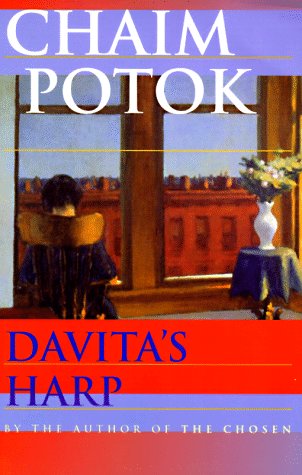 genre: fiction/Jewish Literature
genre: fiction/Jewish Literaturerating: 5/5
When we meet Ilana Davita she is around 8 years old, in the late 1930s. She lives in New York City with her writer-activist parents in a non-religious household. The subject for which her parents have nearly radical zeal is, we learn through Davita's listening in to conversations and nightly meetings, communism. Her parent's decisions and activism, their friends and political struggles lie at the heart of Davita's young life - they move frequently and her nights are spent in a strange dream of "Spain" and "Fascism."
Before I read this book I had no sense that the second World War played such a vital role within the context of the story, and the communist movement within America at the start of the war is a perspective I have never read about before. Davita's entire life is shaped by involvement of people she loves within the War - either first-hand or through political leanings that taint the reputation and limits one's freedom.
What I particularly loved about this book is Potok's firm grasp of a young child's voice - their understandings and misunderstandings. The entire tale is told from Davita's point of view and we often share her frustration as she understands that very important things are happening and all she can do is wait to be told or try to figure it out for herself.
The characters in this story are deep and vivid. I loved Davita's depth-less thirst for knowledge - about the meanings of words, about the war, and, eventually of Judaism and the Torah. Her decision to become religious on her own, despite her mother's disapproval, felt very real and was a thread throughout the book that I found particularly engaging. The other characters - her parents, the friends of her parents - and even Davita's own friends, never felt false or caricatured. Each person was flawed and yet full of different strengths that Davita used to help find her own way through the trauma of war and of growing up in a tumultuous time.
Davita's Harp is amazing, it has an almost mystical quality about it. The harp itself, which hangs on a door and is an omen of both good and bad - but mostly is a tinkling constant throughout her childhood, becomes a haven within the story-world that Davita retreats to when life becomes more than her imagination can handle. Because her world is sometimes incredibly harsh and confusing, her search for truth and good occasionally becomes a struggle against those she loves and respects the most.
This is a story of the uselessness of war, the truth that can be found between the lines of stories and the pages of books, the beauty and reality of Judaism and the reconciliation of a girl with the world that she was born into. A triumph.
This is my favorite Potok, by far. Loved it. Great review!
ReplyDeleteI love this book too.
ReplyDelete